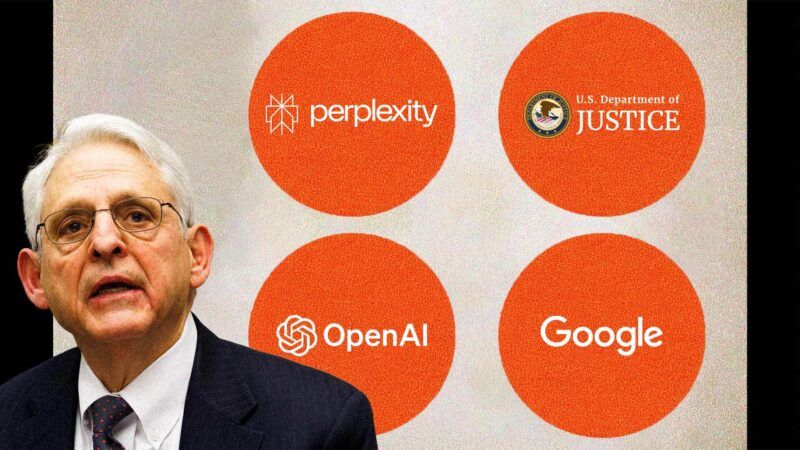OpenAI and Perplexity's New Browsers Make the Monopoly Claims About Google Look Foolish
The market has demonstrated it’s perfectly capable of fostering innovation and competition without government intervention.

The private sector is showing the flimsiness of the Justice Department's argument that Google has a monopoly on the search engine market.
On July 9, Perplexity AI launched Comet, a web browser that promises a browsing experience "as fluid and responsive as human thought itself." Comet offers a choice of artificial intelligence models, including OpenAI's GPT, Anthropic's Claude, and Google's Gemini, allowing for tailored results, complete with citations and links. Meanwhile, OpenAI is "close to releasing an AI-powered web browser that will challenge Alphabet's market-dominating Google Chrome," according to Reuters.
The introduction of these two browsers comes as the Justice Department looks to punish Google for its alleged market monopoly. In October 2020, the department sued Google for violating Section 2 of the Sherman Act by "unlawfully maintaining monopolies in the markets for general search services." The case was decided in the government's favor in August 2024, despite U.S. District Court Judge Amit Mehta's statement that Google had not "achieved market dominance by happenstance." Instead, he added, "It has hired thousands of highly skilled engineers, innovated consistently, and made shrewd business decisions. The result is the industry's highest quality search engine, which has earned Google the trust of hundreds of millions of daily users."
As covered by Reason's Jack Nicastro, when the Justice Department won its antitrust case against Google in 2024, one proposed remedy was a forced divestiture of Chrome from Google's portfolio, aiming to create a level playing field and "open up the market for rivals and new entrants to emerge." Antitrust experts and smaller search engines, such as Mozilla's Firefox, have opposed the proposed divestiture. Even if it were to go through, "Google would still dominate the [general search engine] market," explains Nicastro, who points out that people would still use the search engine on Safari, Firefox, and Edge.
Today, Google controls 68 percent of the global browser market, and a 89.6 percent share of the global search engine market, its lowest share in over two decades. Advances in technology and shifts in consumer behavior have led to increased competition in the space.
OpenAI has already reached $10 billion in annual revenue, with 500 million users engaging with ChatGPT on a weekly basis, according to CNBC. Perplexity, which launched in 2022, has received backing from several high-profile investors, including NVIDIA, Apple, and Meta (the latter two have sought to acquire Perplexity, according to CNN).
The company's run rate, a forecast of its future performance based on current revenue and financial data, is expected to be more than double its 2024 rate of $80 million by the end of 2025. With over 22 million active users and 13.9 million app downloads, Perplexity appears to be a potential competitor to Google in the market.
The success of companies like Perplexity and OpenAI should demonstrate to the Justice Department that the market is capable of handling dominant companies without heavy-handed government intervention.


Show Comments (13)